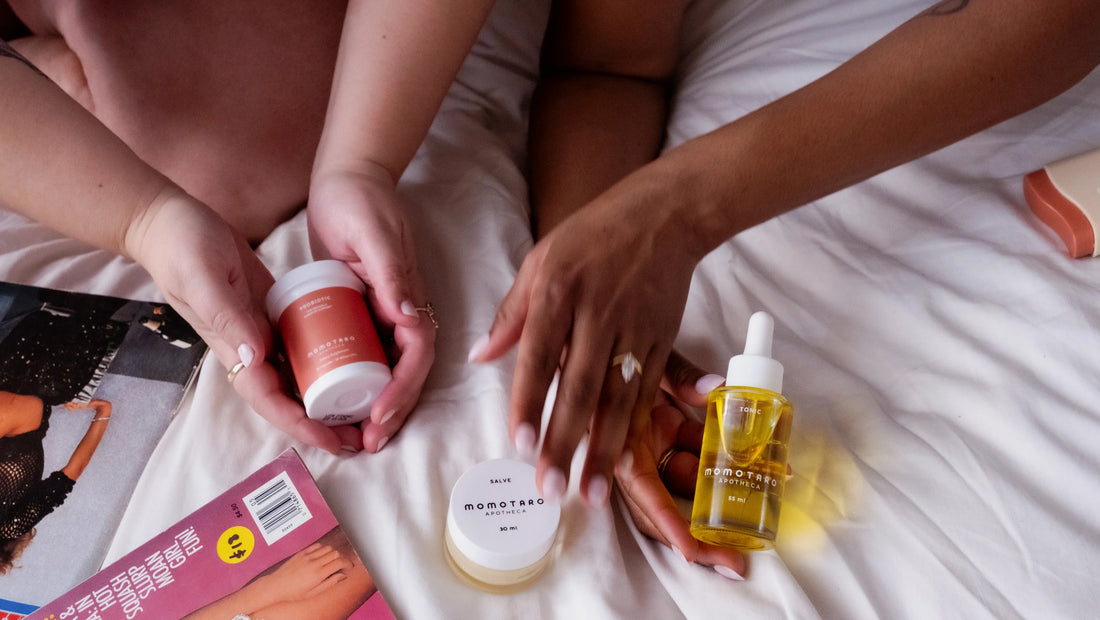
When Sex Hurts: Understanding Dyspareunia and Finding Pleasure Again
Share
Most of us have a general idea of what good sex is “supposed” to feel like—pleasurable, exciting, maybe even a little transformative. So when sex starts to feel uncomfortable or downright painful, it’s easy to feel like something is wrong.
Maybe you find yourself dreading intimacy because it’s not feeling good anymore, or you’re pushing through discomfort because you think you “should” be enjoying it. Maybe you’re wondering if it’s just in your head or if you’re the only one struggling with this.
You’re not.
Painful sex—clinically known as dyspareunia—is more common than you think. And the more we stress about it, the more our bodies tense up, creating a cycle of pain, frustration, and avoidance that can make intimacy feel like a chore rather than a source of connection and pleasure.
So, why does sex hurt? And more importantly, what can we do about it?
Why Does Sex Hurt?
Pain during sex isn’t just something to “push through.” It’s your body’s way of telling you that something needs attention. Here are some of the most common reasons why sex might be uncomfortable:
1. Not Enough Lubrication
A lot of us grew up with the idea that if we’re “turned on,” our bodies should just automatically produce enough lubrication for sex. But that’s not always how it works. Hormonal shifts, stress, medications (like antidepressants or birth control), and even dehydration can affect natural lubrication. And sometimes, our bodies just need a little extra help.
What helps? A high-quality, body-safe lubricant can make all the difference. Water-based lubes are great for everyday use, while oil-based or silicone-based options might work better for longer sessions or different types of play. If you’re experiencing chronic dryness, hydrating vaginal care products (like our salve) can also help.
2. Tension & Stress
Our bodies and brains are deeply connected, especially when it comes to sex. If you’re carrying stress, anxiety, or unresolved emotions, your pelvic floor muscles might tense up as a protective response. When these muscles stay contracted, penetration can feel tight, uncomfortable, or even impossible.
What helps? Deep breathing, mindfulness, and practices like vaginal massage or pelvic floor therapy can help release tension. If sex-related stress is playing a role, talking to a trusted partner, therapist, or sex educator can also help reframe your relationship with intimacy.
Pelvic Health Priorities: It's More Than Just Kegels
3. Hormonal Changes
Menopause, perimenopause, postpartum recovery, and certain medical treatments (like chemotherapy) can lower estrogen levels, leading to vaginal dryness and thinning of vaginal tissues. This can make penetration feel like sandpaper—definitely not the pleasurable experience we’re hoping for.
What helps? Vaginal moisturizers, hormone replacement therapy (if appropriate for you), and regular use of lubricant can help keep tissues hydrated and flexible. Exploring different types of stimulation that don’t rely on penetration can also be a great way to maintain intimacy without discomfort.
Read: Sex After Menopause, A Whole New Chapter Of Sexy
4. Pelvic Floor Dysfunction
For some people, painful sex is linked to an overactive or imbalanced pelvic floor. Conditions like vaginismus (involuntary tightening of vaginal muscles) or hypertonic pelvic floor disorder can make penetration feel impossible, even with lubrication and relaxation techniques.
What helps? Pelvic floor therapy with a specialist can be life-changing. Exercises, biofeedback, and stretching techniques can help retrain muscles to relax and respond more comfortably to touch and penetration.
5. Infections & Medical Conditions
Chronic yeast infections, bacterial vaginosis, urinary tract infections, endometriosis, and vulvodynia (chronic vulvar pain) can all contribute to painful sex. If you’re experiencing burning, irritation, or pain that doesn’t go away, a check-in with your doctor is a good idea.
What helps? Treating underlying infections or conditions is key. In the meantime, focusing on gentle, non-irritating vaginal care and avoiding harsh soaps or douches can help maintain a balanced microbiome.
Shop Organic Solutions For Vulva and Vaginal Care
Finding Pleasure Again
If you’ve been avoiding sex because of pain, you’re not alone. But healing doesn’t just mean eliminating discomfort—it means finding ways to feel good in your body again. Instead of focusing on how often you should be having sex, shift the focus to what feels good for you, right now.
-
Expand Your Definition of Intimacy: Pleasure isn’t just about penetration. Sensual touch, mutual masturbation, massage, making out, or even simply lying together and focusing on connection can be incredibly fulfilling.
-
Create a Supportive Environment: Soft lighting, relaxing scents, and setting the mood can help your body feel more at ease. Stress and distraction are major desire-killers, so take the time to create an environment where you want to be intimate.
-
Communicate Openly: Talk to your partner about what you’re experiencing. Let them know what feels good, what doesn’t, and what you’d like to explore together. If you’re feeling anxious, framing intimacy as an exploration rather than a performance can take the pressure off.
-
Prioritize Foreplay & Arousal: Arousal isn’t a switch—it’s a process. Spending more time on foreplay (or what we usually think of as foreplay) can make a huge difference in comfort and pleasure.
The Bottom Line: You Deserve Pain-Free Pleasure
If sex has been painful for you, know that you don’t have to suffer through it. There are real solutions, whether it’s physical therapy, better lubrication, a new approach to intimacy, or simply giving yourself permission to slow down and listen to your body.
Your pleasure matters. Your comfort matters. And you absolutely deserve sex that feels good.
Related Reading
Dancing Through the Pain of Vaginismus

